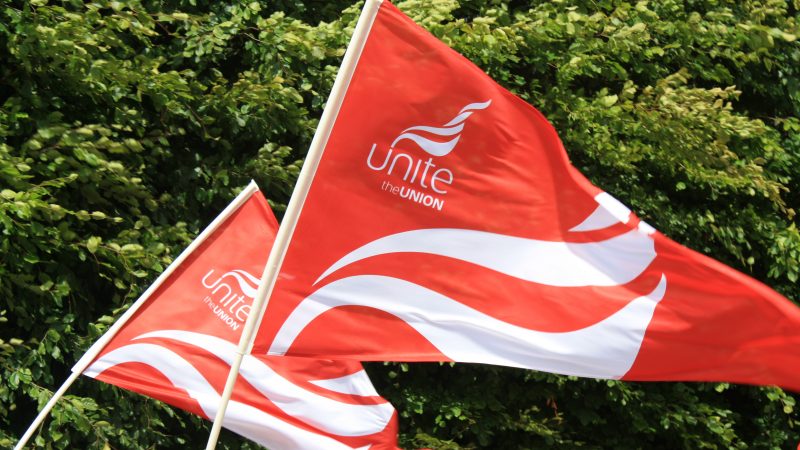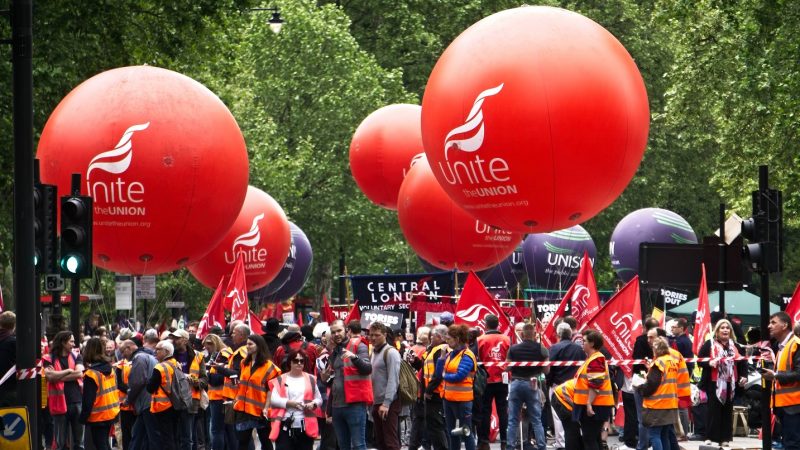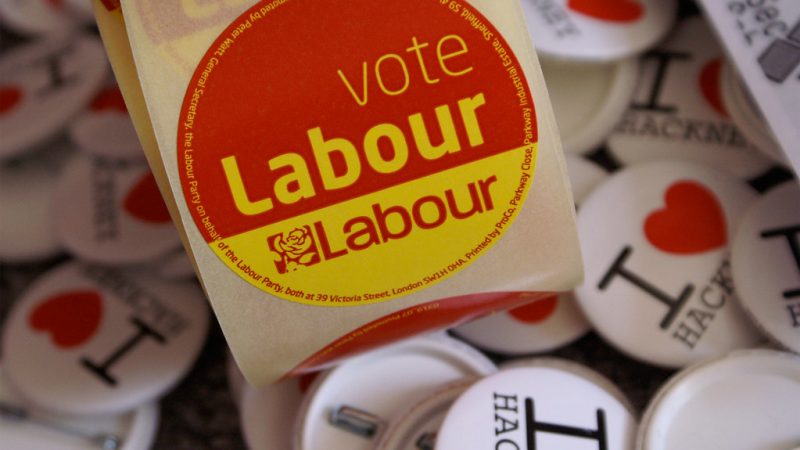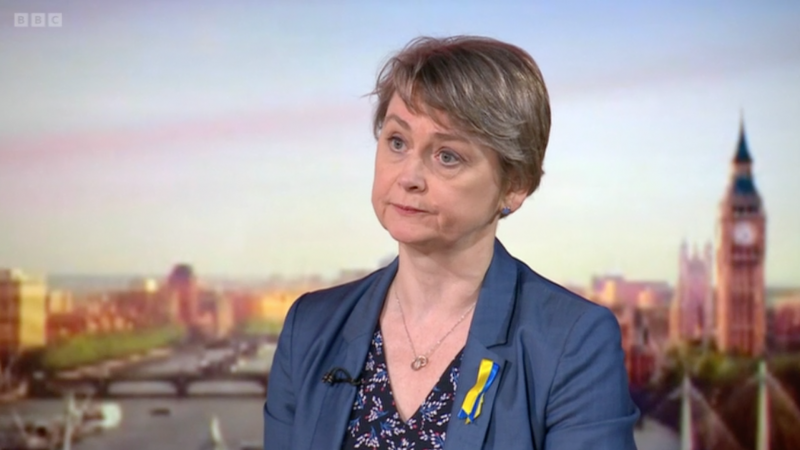Mike Phipps raises some concerns about the re-election of President Maduro
AUGUST 21,2024.
Can two things be true at once? Could most of Venezuela’s economic difficulties be caused by punitive US sanctions – at the same time as its government responds to the crisis and its shrinking social base with repression and electoral fraud?
Much of the mainstream coverage of events in Venezuela exhibits unconcealed support for its opposition, currently organised around the US-backed María Corina Machado. Contradictorily, it promotes this opposition as both an authentic manifestation of democracy and something that may need to be assisted into office by force, backed by external intervention. At the same time, the right wing media claim a continuity between the authentically radical and redistributive policies of Hugo Chávez and the increasingly authoritarian and corrupt regime of Nicolás Maduro.
The media takes its lead from the stance of most Western governments, which openly supported the farcical self-declaration of Juan Guaidó as president in 2019, then adopted tough sanctions against Venezuela and supported the Trump Adminstration’s open attempts to overthrow its government.
Much of the left has tended to accept this framing and adopt a polar opposite stance, uncritically defending the Venezuelan government against its external enemies and correctly pointing out that Western concern with Venezuela’s sovereignty is motivated by a desire to control the country’s oil reserves. Many Venezuelans, however, are all too aware that Maduro’s regime constitutes a rupture with the achievements of his predecessor, not continuity with Hugo Chávez.
Devastating sanctions
The Venezuelan economy is on its knees. Over seven million Venezuelans have left the country in the last two decades. The current situation is all the more shocking when one considers that it was one of the twenty richest countries in the world in 1970, thanks to its oil reserves.
The contraction in the global economy hit Venezuela hard, but the election of Hugo Chávez saw a period of sustained economic growth in Venezuela, a doubling of social spending between 1998 and 2011, major social gains for the working class and a halving of poverty in under a decade.
A dramatic decline in global oil prices hit just as Maduro took over. US economic intervention was also very destructive. It included the seizing of tankers bound for Venezuela, the freezing of government bank accounts and the recognition of an alternative government to that of Maduro, to which it transferred the country’s offshore assets. The cumulative effect of these sanctions has been devastating.
In attempting to maintain living standards, the Maduro government racked up colossal foreign debts. Meanwhile, the economy shrank between 2014 and 2021 by over 80%.Hyperinflation hit and poverty has now soared, wiping out the gains achieved under Chávez. As the government has lost support in its working class strongholds, it has relied increasingly on keeping the army loyal and repressing every other potential source of opposition.
This includes organised labour. The government banned strikes and the right of the working class to mobilise and organise new unions has been met with the prosecution and imprisonment of union leaders. There have been some significant individual cases of severe repression.
Humanitarian NGOs have also been targeted. A year ago, the government removed the Red Cross’s president and liquidated its board – this, in a country where the UN says one in five people need humanitarian assistance. Earlier, a draft law targeting NGOs was described by the UN Human Rights Office as “a point of no return in the closure of the civic space.”
Against this backdrop, 2024’s presidential election assumed huge significance. The process was the result of negotiations with both the opposition and the United States, which involved the easing of oil sanctions, which has helped improve Venezuela’s dire economic situation. The US was undoubtedly self-interested in these negotiations: Venezuela has now become the world’s sixth largest oil exporter to the US. But if the elections are not seen as fair and the outcome is disputed, tough new sanctions could cripple the country further.
A fair election?
There are many ways to steal an election. The first is to prevent your opponents from running. That certainly happened in Venezuela this year. Of course, it might be legitimately objected that the country’s right wing parties, by supporting Western sanctions and foreign intervention to secure the overthrow of the Maduro regime, disqualified themselves. But that doesn’t apply to candidates on the left, whose organisations previously supported the Bolivarian revolution.
The Venezuelan Communist Party (PCV) was founded in 1931 under the military dictatorship of Juan Vicente Gómez. In 1998 it backed Hugo Chávez in the presidential elections and was a significant part of the Chávez coalition.
In 2020, the party distanced itself from Maduro, who succeeded to the presidency following Chávez’s death, saying it would not support him unless he changed his “submissive “ economic policy. Later that year, the party claimed it was facing “disproportionate attacks” from the Maduro government.
In August 2023, the Venezuelan Supreme Tribunal of Justice intervened to declare pro-Maduro communist Henry Parra the de jure President of the party, resulting in outcry from majority wing led by General Secretary Óscar Figuera. The latter had become increasingly critical of Maduro, calling his government neoliberal and authoritarian.
In March 2024, Maduro proclaimed himself the PCV candidate for the upcoming presidential election – in contravention of the PCV’s National Conference the same month which declared the party’s support for an independent candidate, journalist Manuel Isidro Molina. The latter is a strong critic of Maduro, whose government’s actions he has denounced as “perverse, corrupt and immoral.” In the event, his candidacy was barred.
One might have expected the left internationally – and certainly the PCV’s communist co-thinkers around the world – to leap to the defence, or at least question the treatment of one of their own. Yet you will struggle to find much coverage of such flagrant anti-democratic manoeuvres in much of the left’s coverage of the Venezuelan election, which falls over itself to cheer on the failing Maduro regime.
The main opposition candidate, Edmundo González, had the backing of the right wing, although his own background is less clearcut, having served as Venezuelan ambassador in Argentina during the Chávez administration. Several former Chavista ministers and leftist and NGO activists called for a vote for González. That said, he was clearly aligned with the forces of the far right around María Corina Machado and its overtly neoliberal agenda.
The Communist Party, having had their preferred candidate kept off the ballot, supported a centre-right candidate. Far left groups called for a null vote. Police harassment of González’s campaign was fairly open. But at least he was on the ballot. The left really had no candidate.
According to a preliminary report on 2nd May from Venezuela’s National Electoral Council, of the almost 7.7 million Venezuelans abroad, only 69,189 would be able to vote, due to the multiple restrictions placed on overseas voting. In the event, only a fraction of these actually participated. Within the country, there were credible reports of intimidation on voting day itself.
A full tally of results is still awaited
Predictably, the results were disputed as soon as they were announced, with non-democracies Nicaragua, China, Russia, and Iran saluting Maduro’s victory and the USA and its regional allies claiming the opposition won. Much of the left internationally fell into the former camp.
But this time, they were some perhaps surprising individuals who questioned the outcome, including Presidents Lula of Brazil and Boric of Chile, who said the results were “hard to believe,” and stated that his country would not recognize “any result that is not verifiable.” Lula had also earlier criticised Maduro’s comments that there could be a “bloodbath” if his government was defeated, telling him “when you lose, you leave.” The left wing governments of Colombia and Mexico have also called on the Maduro government to allow a public audit of the votes cast on 28th July.
Maduro supporters boast that international monitors such as the Carter Centre have in the past given Venezuelan elections a clean bill of health. This time around, the Centre notably withheld its support, saying it could neither verify nor corroborate the results. It added: “The electoral authority’s failure to announce disaggregated results by polling station constitutes a serious breach of electoral principles. Venezuela’s electoral process did not meet international standards of electoral integrity at any of its stages and violated numerous provisions of its own national laws.”
As one analyst concluded: “Today, organizations that had once approved Venezuela’s elections now condemn them.”
In mid-August, an interim report by a UN Panel of Experts invited to Venezuela to follow the elections concluded that the process “fell short of the basic transparency and integrity measures that are essential to holding credible elections. It did not follow national legal and regulatory provisions, and all stipulated deadlines were missed.
“In the experience of the Panel, the announcement of an election outcome without the publication of its details or the release of tabulated results to candidates has no precedent in contemporary democratic elections.”
Shortly after midnight on 29th July, Maduro was officially declared to have won with 51% of the vote. The following morning, mass protests erupted across the country, many from the poorer neighbourhoods once loyal to Chavismo. It’s hard to fully gauge the role of the right wing opposition in these demonstrations, but the scale of them meant that the right wing struggled to lead or channel them.
As one study noted, “Videos of residents in low-income areas like Petare, Catia, Valles del Tuy and other historical strongholds of Chavismo have been shared across social media, with residents banging pots, burning tires and marching in the streets… even… throughout the former Chavista bastion that houses the Cuartel de la Montaña, where the mausoleum of Chávez – who died in office in 2013 – is located.”
David Smilde, a sympathetic US academic underlines this: “On July 29, the day of Maduro’s proclamation it was the popular sectors who went to the streets to protest, despite María Corina Machado‘s calls on the population *not* to take to the streets. This should not surprise. They are the sectors that have most suffered in recent years with the economic collapse and were most hoping for change. And it is precisely because they are not the traditional opposition base — that they did not pay attention to the call not to protest — and went to the streets. The optics of this protest are quite difficult for Maduro as it is not easy to portray them as the same middle class, violent protests of 2014 and 2017.”
The regime, however, made no such distinction. It responded with mass repression, with 2,000 arrests, over a thousand people imprisoned, two dozen deaths and several disappearances. Amnesty International was among the many human rights organisations that condemned the repression.
The results continue to be disputed. The right wing opposition has presented detailed findings suggesting Maduro won only 30% of the vote. This should be easy to refute. But Venezuela’s National Electoral Council (CNE) has still not released a full tally of the votes cast three weeks after polling day.
Federico Fuentes of Green Left Weekly – hardly a stooge of imperialism – pointed out: “The CNE says it has been the victim of hackers. But this did not stop it counting votes between July 28 and August 2, when it released its updated results. Moreover, following Maduro’s request that the Supreme Court investigate the election results, the CNE handed tally sheets to the court. So, the booth by booth tallies are there, it is simply the CNE not abiding by its legal requirement. With each day that the CNE fails to publish them, doubts grow about the result.”
The Carter Centre has described the Court as a “government institution”, adding, “This is not an independent assessment.” The fear is that the ‘verification process’ will take place behind closed doors, without transparency.
Brazilian President Lula and Colombian President Petro, having pressed the regime to release the vote tallies, proposed instead on 15th August that the election should be rerun. Lula went so far as to describe the Venezuela administration as having an “authoritarian slant”, saying it was “a very unpleasant regime.” The opposition and the Maduro government both rejected the proposal, each stating they had already won.
Democracy under threat
This article has largely avoided right wing media sources and does not support the dominant Western narrative on Venezuela. Raising these concerns does not mean supporting Western sanctions against Venezuela or any other form of foreign interference. But it does underline the contrast between the increasingly authoritarian regime of Maduro and his predecessor.
As Fuentes notes, “The government has drastically reduced the scope for people’s participation in everyday politics. This is precisely the opposite of what Chávez did — and what was at the heart of his radical project of change. When the CNE questioned whether the opposition had collected enough signatures for a recall referendum in 2004, Chávez said the referendum should go ahead anyway so that the people could decide. This example is well worth keeping in mind today.”
Smilde agrees: “The best way the left can push back against US hegemony would be to advocate for and support movements and governments that work against structural inequality in all its forms, through democratic means. Concentrating power does not lead to more democracy.”
For the left internationally, the choice is clear: stick to the Maduro regime, whatever abuses it commits, or return to first principles, opposing imperialism and promoting the self-organisation of Venezuela’s working class and the fundamental democratic rights of its people.
Mike Phipps’ book Don’t Stop Thinking About Tomorrow: The Labour Party after Jeremy Corbyn (OR Books, 2022) can be ordered here.
Image: 2024 Venezuela protests. Source: https://www.youtube.com/watch?v=4K2lWW2Acn8. Author: Confidencial, licensed under the Creative Commons Attribution 3.0 Unported license.












